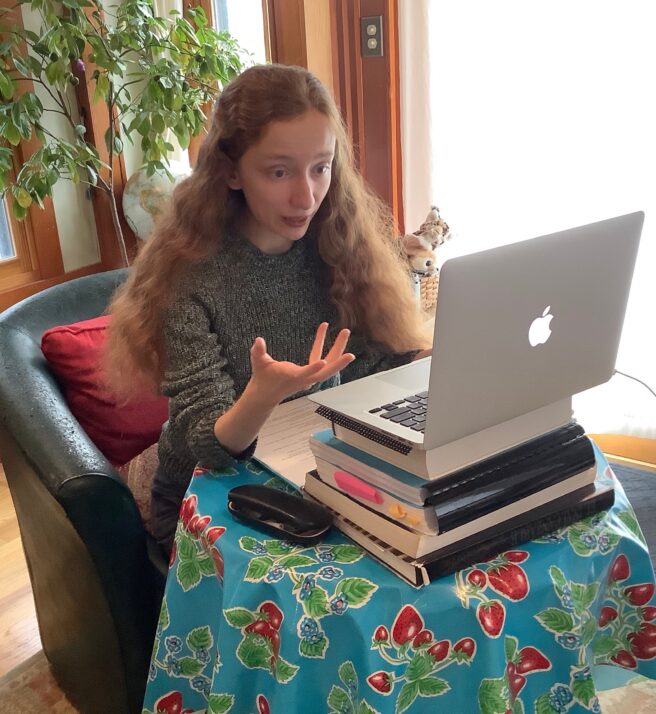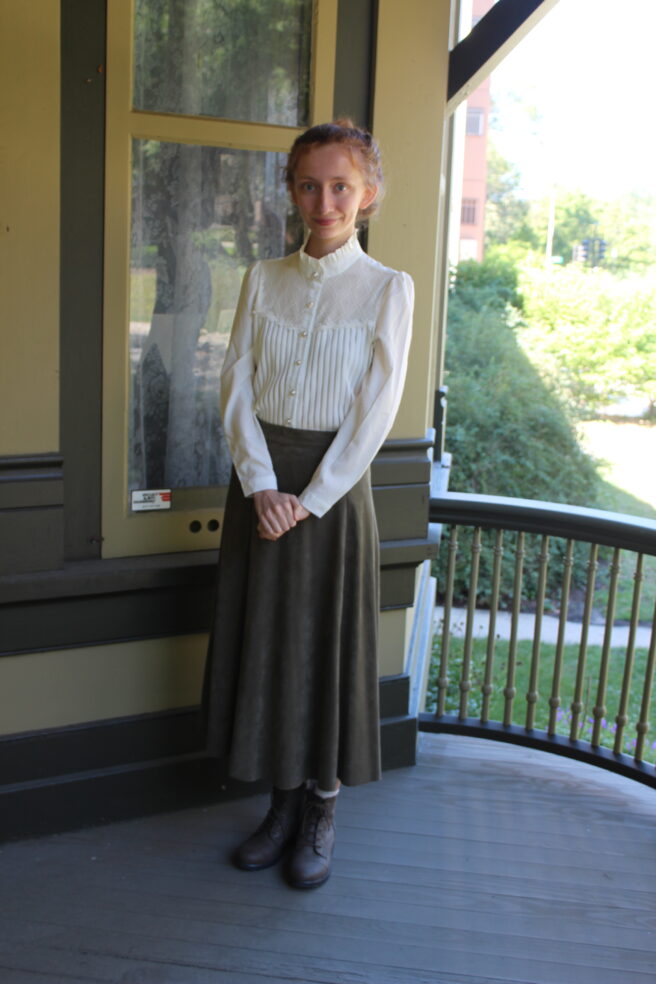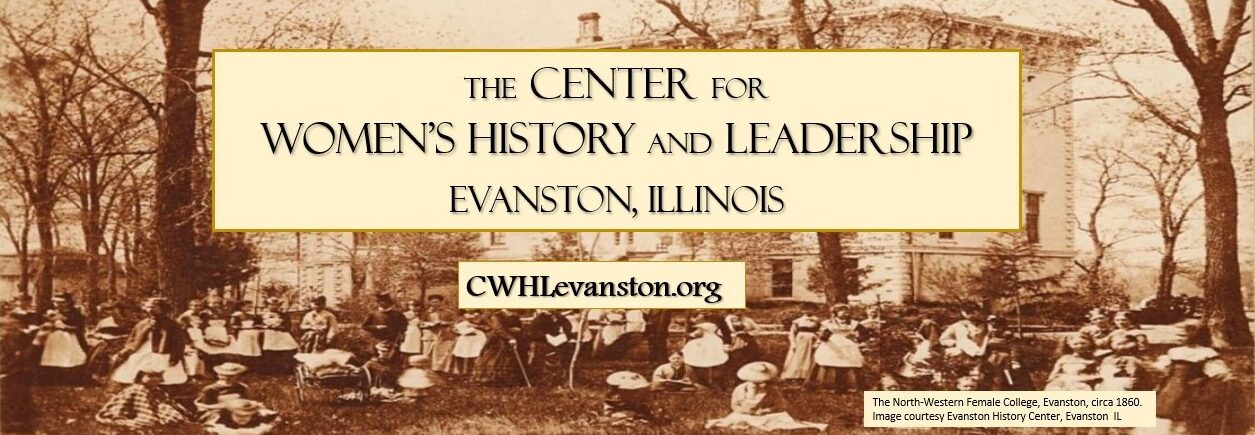By Fiona Maxwell
A group of visitors from Sky Island crowded around the fat dictionary on Frances Willard’s bedroom desk. They had found a clue – a mysterious annotation that held the secret to the unknown history of woman’s suffrage on Sky Island.
Sky Island is the creation of the 3rd, 4th, and 5th grade students in my theatre games and story theatre class at the Piven Theatre Workshop, a nonprofit theatre school in Evanston. Each week we gather on Zoom to explore the people and places that make up this imaginary world. In the process, the students develop skills in acting, speaking, reading, and writing. On November 14, we took a virtual field trip to the Frances Willard House Museum.
Providing educational programming is one of the central goals of the Willard House. Frances Willard stated in her will that she intended for her home to be used to teach children and young people. First as an intern and now as a Museum Fellow, one of my tasks at the Willard House has been to design youth tours and workshops. The COVID-19 pandemic has upended in-person operations at the Museum and at countless other cultural organizations around the world. When the pandemic hit, Piven pivoted to online learning. My 3rd-5th grade class is currently comprised of a group of highly imaginative young girls, many of whom are interested in history and historical fiction. Taking a virtual field trip to the Willard House seemed like a perfect fit.

Theatre education activities align well with the Willard House’s collections and with Willard’s life and work. Growing up on a Wisconsin farm, the Willard children engaged in immersive dramatic play. In the same way my students build Sky Island and record their adventures in their virtual newspaper, the Piven Times, Willard and her siblings crafted an imaginary town called “Fort City” and wrote their own newspaper. (Also, in both worlds, women hold the highest positions of government!) In the Rest Cottage parlor, the Willard family and their guests engaged in a variety of participatory arts activities, including storytelling, games, reading aloud, singing, playing the parlor organ, and making handicrafts. Willard was a talented and pathbreaking orator, and she advocated for women and girls to acquire speech training at a time when female public speakers were suspect. She studied elocution with Robert Cumnock, a professor at Northwestern University and the founder of the Cumnock School of Oratory. Cumnock also trained Winifred Ward, who, through her Creative Dramatics program at Northwestern and her work with the Evanston public schools, became one of the foundational figures in the field of educational drama.

Using Zoom and PowerPoint, my students and I traveled back in time to discuss what it was like growing up during the nineteenth century, to learn about Frances Willard and other women leaders, and to explore every nook and cranny of the House Museum’s rooms and objects. Afterwards, the students did what they do best. They improvised a story together – in this case, a suffrage mystery.
What did the residents of Sky Island find in Frances Willard’s dictionary? The annotation referred to an enigmatic woman who was Sky Island’s most significant suffragist, but her name was smudged. Suddenly, an ancient talking pillow revealed that she knew the whole story, but she would only tell if the visitors found her favorite object. Was it a Dictaphone? A typewriter? Frances Willard’s bicycle? At long last, the visitors brought the magic pillow what she was looking for – the lace curtains hanging in the parlor window.
The class didn’t get to play in the Willard House’s real-life parlor. But they certainly came away from their virtual field trip with their historical curiosity peaked. Hopefully one day they can visit the House and see their favorite rooms and artifacts in person. I, for one, know that I’ll never look at Frances Willard’s dictionary the same way again!
